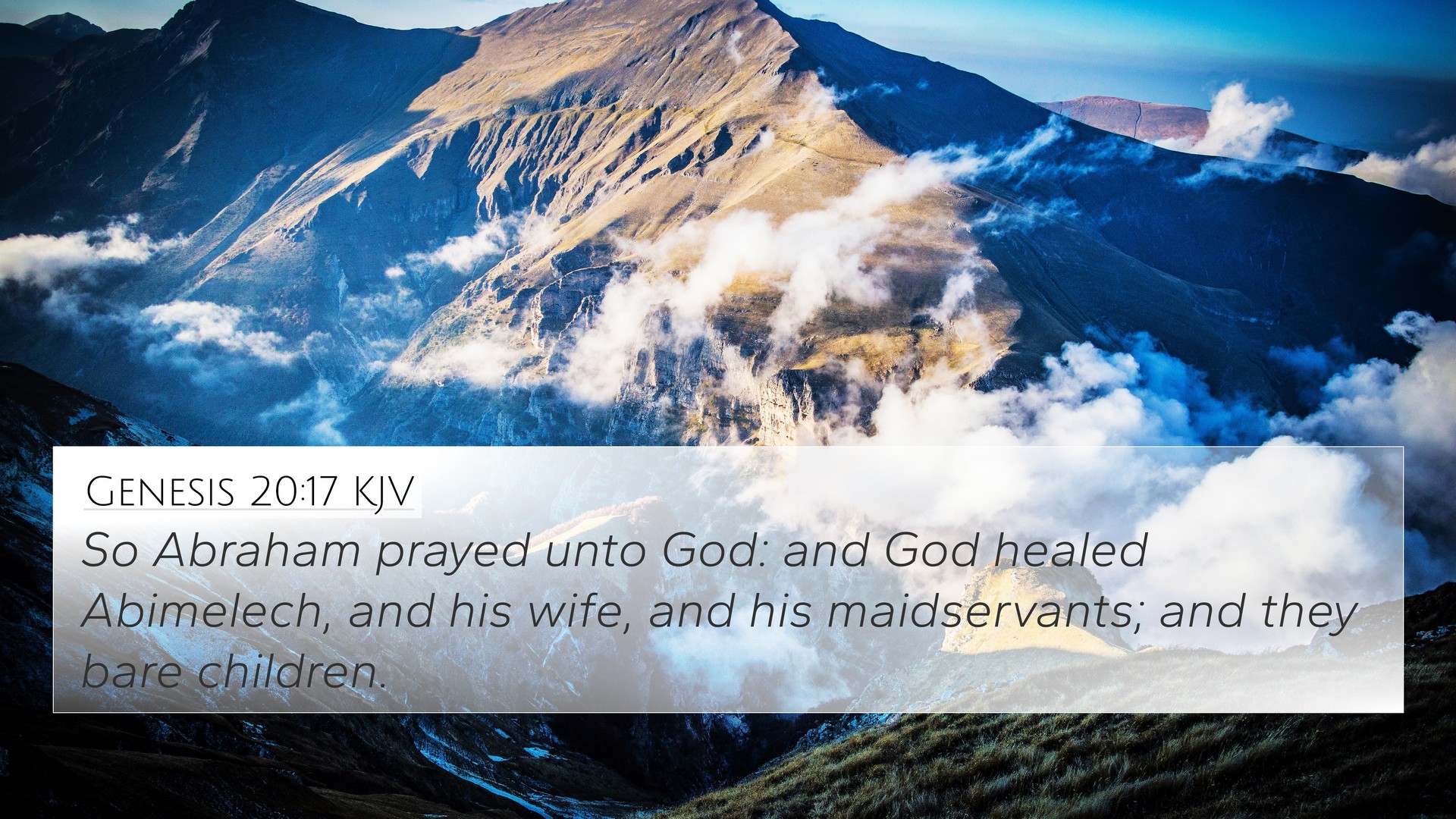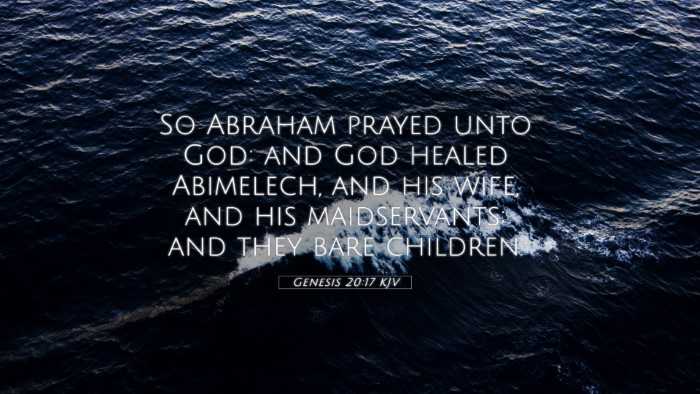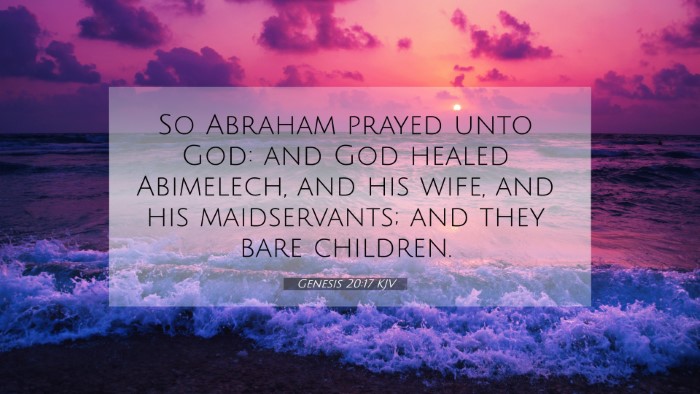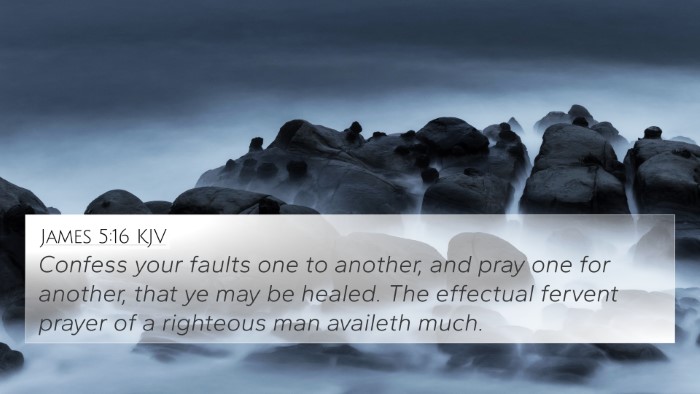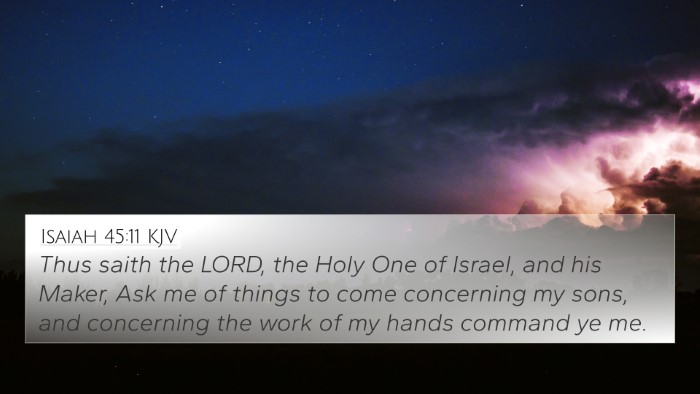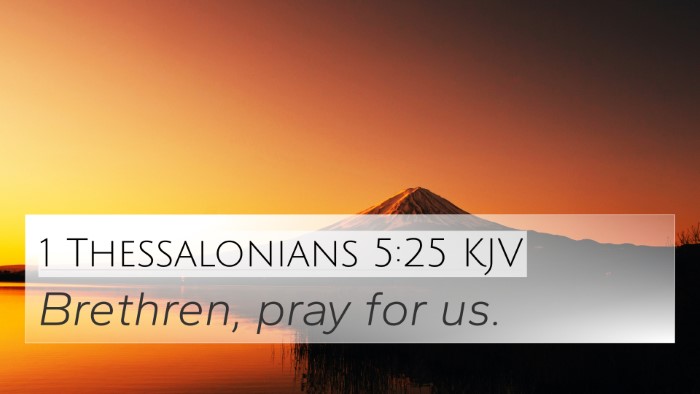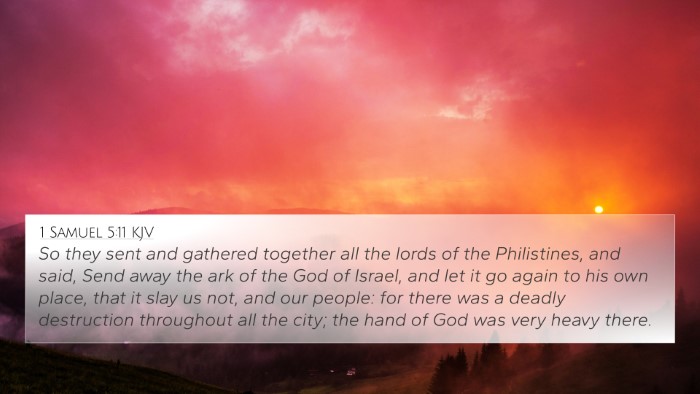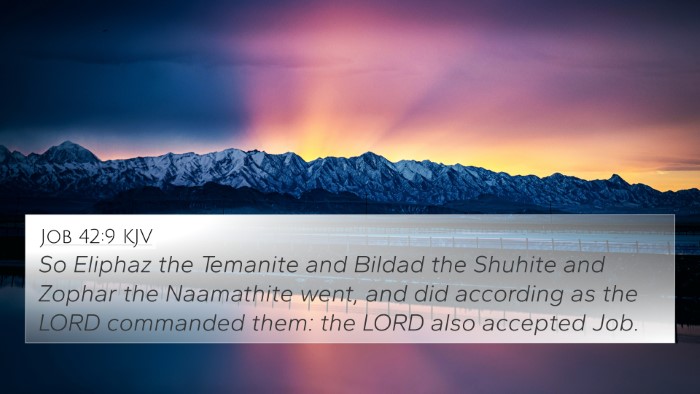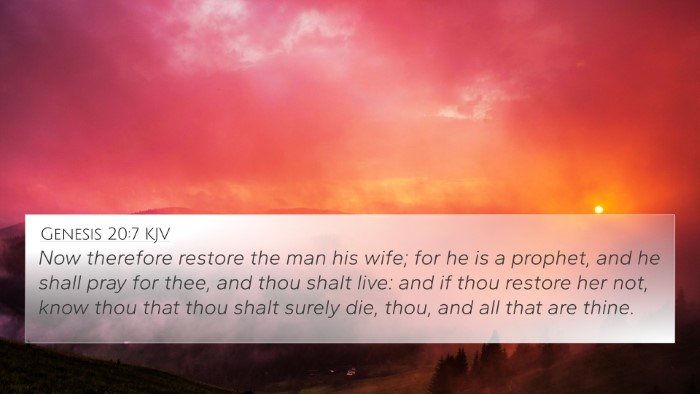Understanding Genesis 20:17
Genesis 20:17 states: "And Abraham prayed unto God: and God healed Abimelech, and his wife, and his maidservants; and they bare children." This verse comes from a narrative in which Abraham, after having deceived King Abimelech regarding the identity of Sarah, intercedes on behalf of Abimelech and his household.
Key Themes in Genesis 20:17
- Intercession: Abraham's prayer for Abimelech highlights the power of intercessory prayer and its role in divine healing.
- Divine Restoration: The healing of Abimelech and his family signifies God's willingness to restore those who may have been wrongfully affected by the actions of others.
- The Sovereignty of God: Despite human actions, God remains in control of circumstances and can intervene as He sees fit.
Bible Verse Cross-References
Genesis 20:17 can be linked to several related scriptures that help elucidate its meaning and implications:
- Exodus 32:11-14 - Moses interceding for Israel, emphasizing the importance of prayer and intercession.
- 1 Timothy 2:1-2 - Paul encourages intercessions made for kings and all in authority, paralleling Abraham's actions.
- James 5:16 - The prayer of the righteous is powerful and effective, reflecting the importance of prayer in all situations.
- Genesis 12:10-20 - The previous account of Abraham's deception of Pharaoh also involves similar themes of intercession and divine intervention.
- Psalm 105:14-15 - God's protection of His prophets and their intercessions for others showcase His care and intervention.
- Proverbs 15:29 - The Lord hears the prayer of the righteous, reinforcing the significance of Abraham's appeal.
- Mark 11:24 - Encouragement to pray and believe in faith for healing and restoration, akin to the outcome of Abraham's prayer.
Insights from Public Domain Commentaries
Matthew Henry emphasizes that prayer is a powerful tool for healing, noting how Abraham's prayer brought spiritual and physical restoration to Abimelech and his household. He remarks that this incident illustrates God's mercy, as He does not hold Abimelech's unknowing offense against him.
Albert Barnes highlights the significance of Abraham's role as an intercessor, labeling him as a mighty prayer warrior. He also points out the implications of divine intervention, suggesting that God often acts to rectify situations caused by human sin.
Adam Clarke elaborates on the cultural context, stating that the barrenness of Abimelech's family served as a consequence of the sin committed against Abraham and Sarah. Clarke points to God's restorative justice, as prayer restored Abimelech's family to fruitfulness.
Thematic Connections and Inter-Biblical Dialogue
Genesis 20:17 serves as a profound example of the thematic connections across the Bible relating to healing, intercession, and divine mercy. The narrative invites readers to explore how similar principles are echoed throughout biblical texts, thus enriching one’s understanding of scripture.
Tools for Bible Cross-Referencing
To further explore these connections, consider utilizing various tools:
- Bible Concordance - A reference tool for locating scriptures related to key terms and themes.
- Bible Cross-Reference Guide - A resource that provides a systematic approach for linking verses effectively.
- Cross-Reference Bible Study - Techniques to facilitate deeper understanding through linked passages.
- Bible Reference Resources - Materials that enhance the study of scripture and encourage scriptural dialogue.
Conclusion
This exploration of Genesis 20:17 reveals profound insights into God's healing power through intercession, the importance of prayer, and the interconnectedness of biblical themes. By recognizing the relationships between different scriptures, believers can gain a more comprehensive understanding of the Bible's message.
